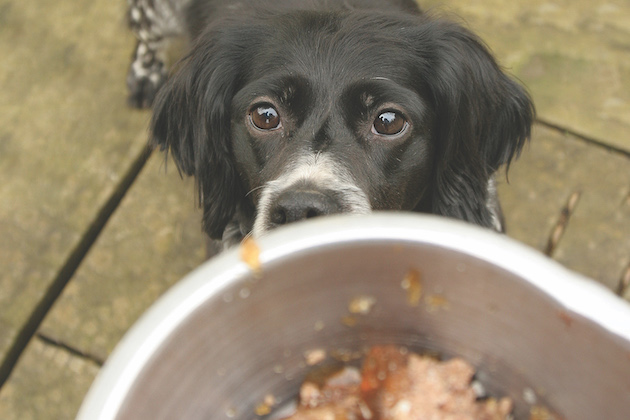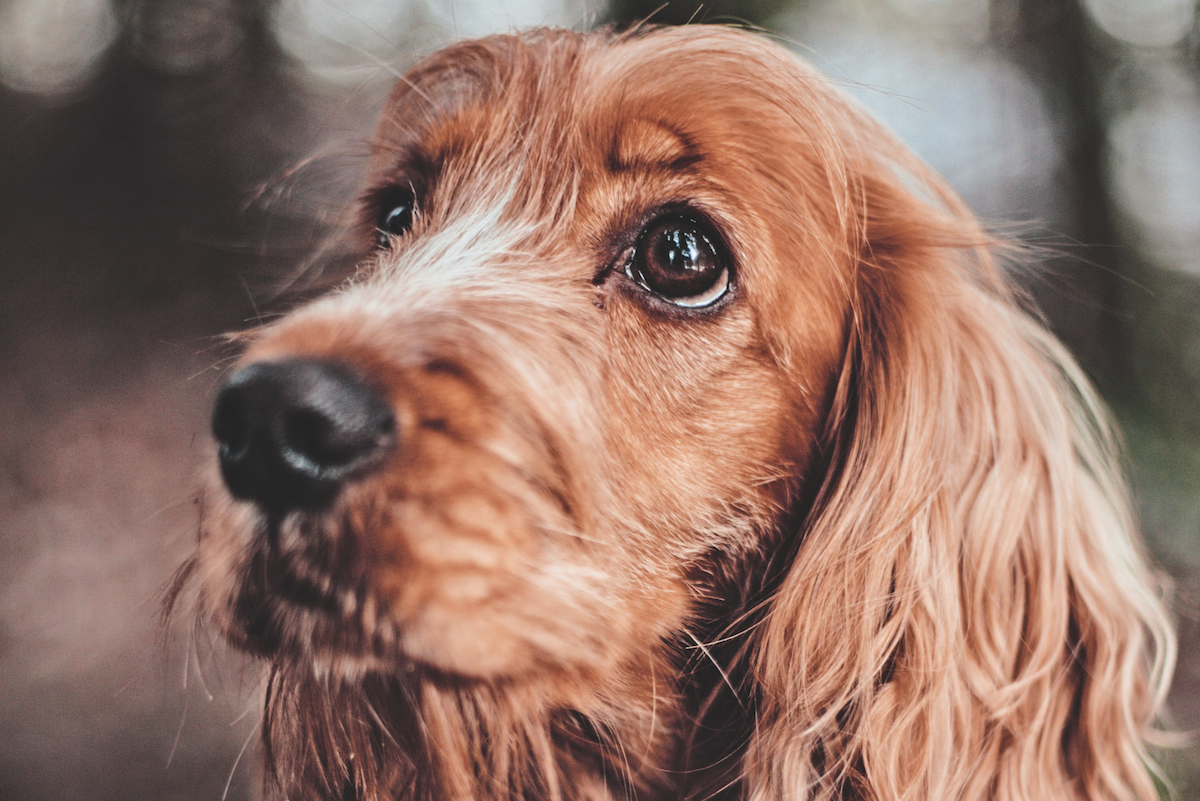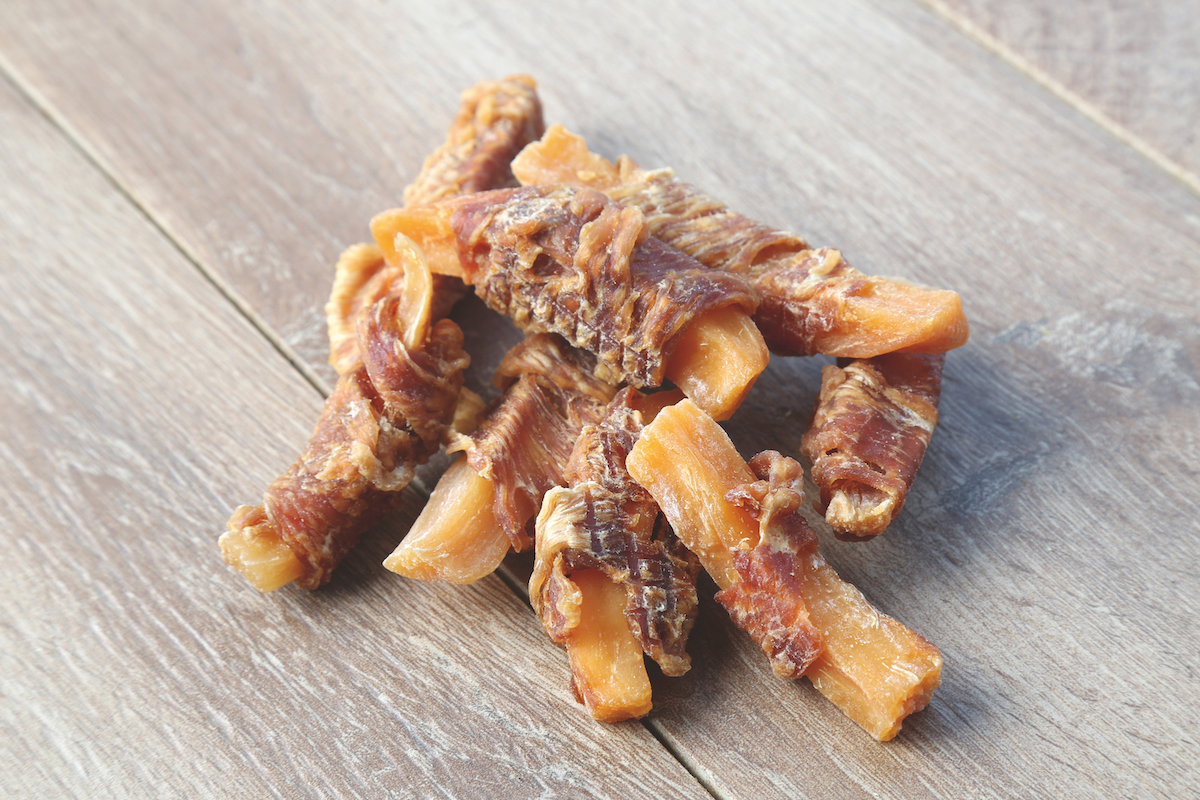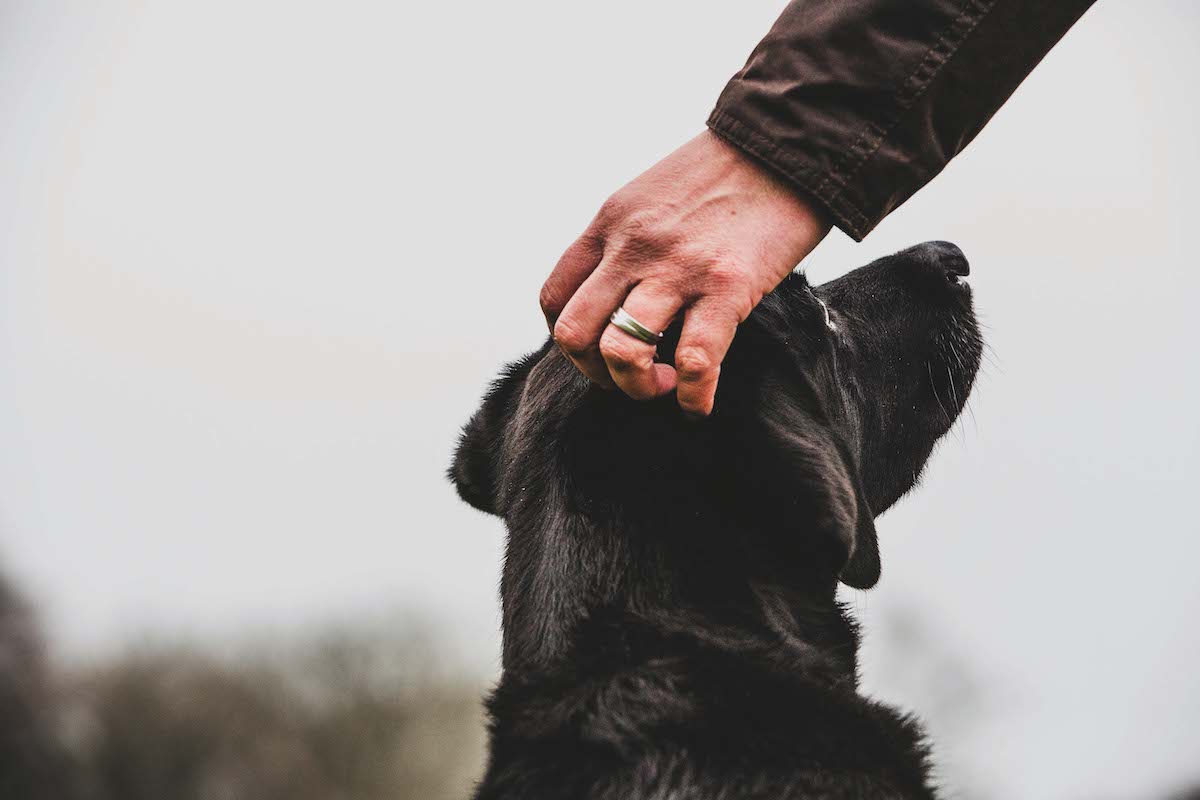What’s the healthiest diet for working dogs?
High protein. Kibble? Raw? Vet Neil McIntosh gives some sound advice

Is raw food better than a dry, kibble diet or not?
I’m often asked by owners of gundog breeds what they should be feeding their dogs. They want to know all about the healthiest diet for working dogs.
Here are some of the questions I’m asked and here’s what I say.
Are all brown kibble diets bad?
You simply cannot lump all dry diets into one and discuss them in this way. Some are poor quality but many are not. I’ve read the websites that do this, most of which then go on to recommend feeding raw (and also sell raw). They frequently mention that ultra-heating ingredients is bad (though no scientific evidence is offered) but neglect to point out that heat can be used to kill salmonella, campylobacter and even anthrax spores. The irony is that many of the diets that are then promoted often have to be recalled due to contamination. Kibble diets are also blamed for obesity (actually caused by owners feeding their animals too much food and not exercising them enough), orthopaedic problems (which have genetic, obesity and age involvements), mammary tumours (no evidence), diarrhoea (no evidence) and a reduction in lifespan (which is utter nonsense).
Kibble diets are safe and can cater for different lifestyles and stages. Everything in moderation.

Feed the dog according to the weight it should be
Are grain-free diets healthier?
No. Some like to believe that dogs are true carnivores, being wolves at heart and in bowel, but over time they have developed more omnivorous tastes and digestive capabilities, so can consume and thrive on a variety of foods, including fruits, vegetables, herbs, grains, meats, poultry and fish. Indeed, in the USA, grain-free and other ‘boutique diets’ have been associated with a higher-than-expected incidence of cardiomyopathy. Some individuals may be intolerant to certain grains. I am allergic to mussels, for example, but that doesn’t mean no one else should eat them.

Some dogs have a grain allergy, not all
Does a commercial diet for working dogs need to be supplemented?
No. Most commercial diets are carefully balanced to provide the correct calories, nutrients, vitamins and minerals appropriate to the age/stage of the dog. Adding supplements, whether they be raw eggs (which contain a trypsin inhibitor, so prevent the digestion of protein) or vegetables will only cause some sort of imbalance. Naturally, feeding small amounts of sensible things as training aids is unlikely to be significant but beware the ridiculous fad for adding all sorts of unproven (but lucrative) additives. So many companies are competing for your money that it is easy to see why the internet is being exploited with claim and counterclaim. The proof of the pudding is in the eating – along with the quality of poo, skeletal density, longevity, reproductive performance, skin, coat condition, dental decay and so on.

Working dogs need adequate protein but not high protein diets
Do working dogs need high protein diets?
No, they don’t. They need adequate levels of protein that is digestible and contains the correct level of bioavailable amino acids. Excess protein (the protein that is left after muscle repair, for example) is either burned for energy or stored as fat. Either way, the waste has to be disposed of by the kidneys and that is wasteful and potentially damaging. Most authorities advise that adult dogs need an 18% protein diet, while puppies and nursing mothers require 22.5%, but this is confusing for owners because it relies on a ‘dry matter’ calculation and not ‘as fed’. Furthermore, the quality of protein is measured by its biological value (BV), with egg being the standard at 100, with other foods measured against it. Chicken is about 80, wheat 45 and gelatin comes in at a lowly 0. That’s right: zero. It looks good but it is junk. Thus, a 20% protein diet based on chicken meat contains more protein than a 30% protein diet containing wheat. And it is worth noting that if you had a 15kg Labrador puppy, you would need to feed it 95kg of beef daily to meet its calcium requirements as part of a balanced diet. Yes, you read that correctly. By the way, raw chicken wings are a great snack for your working dog.
Is fat bad for dogs?
You can’t, on the one hand, argue that we should feed working dogs raw food (a BARF diet) , because that is what dogs in the wild do, then claim that they never eat fat. Certainly, feeding a great excess of fat can lead to obesity and diarrhoea, and some dogs that suffer from recurrent pancreatitis can be sensitive to it. Fat is, however, required for energy, for the proper absorption of fat-soluble vitamins (A, D, E and K) and as a source of the essential fatty acids, Omega 3 and 6, neither of which can be synthesised in the body. A deficiency of these polyunsaturated fatty acids can result in a dry, scaly skin, delayed wound healing and poor reproductive performance.








